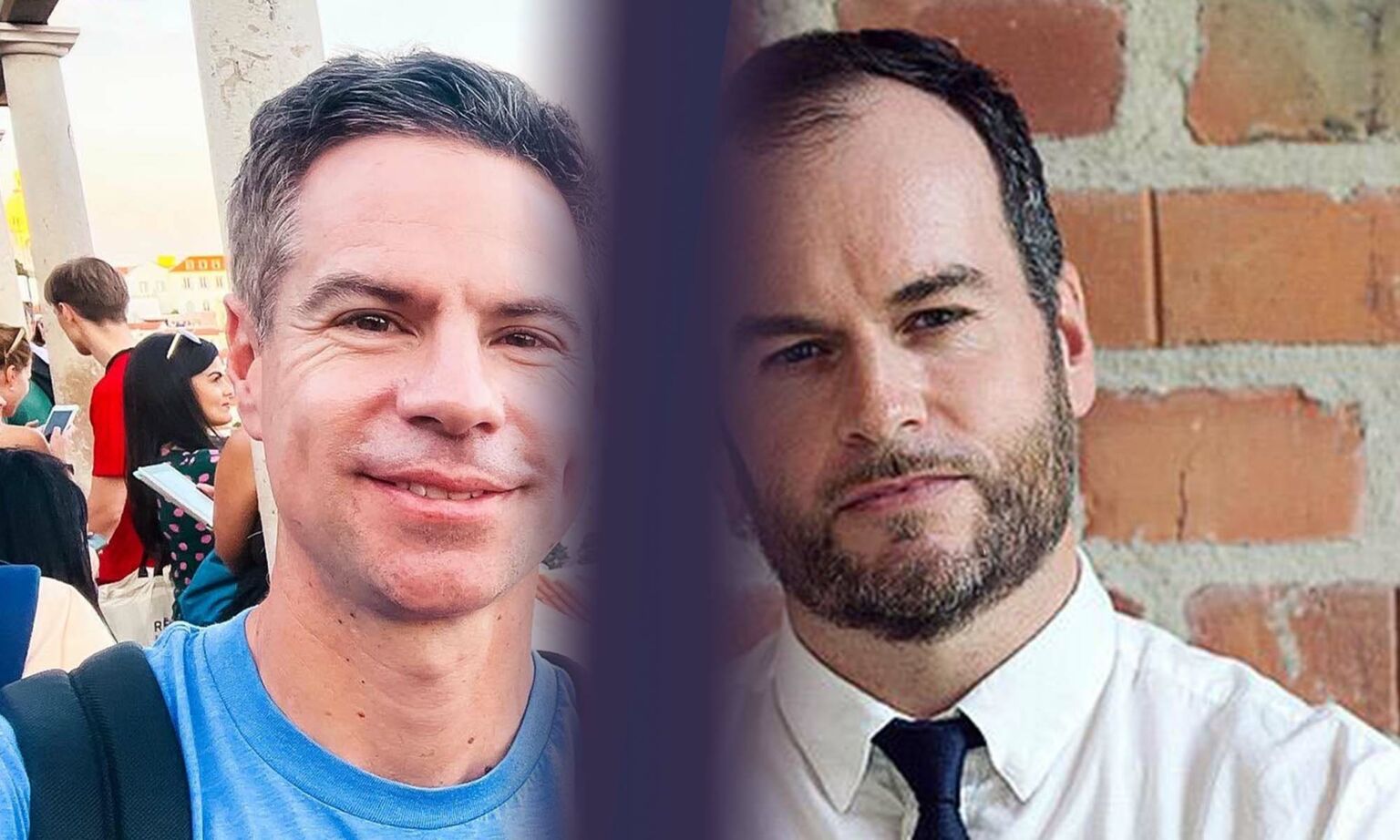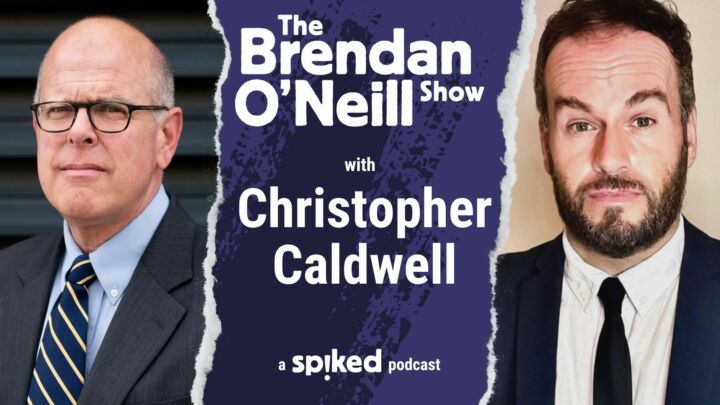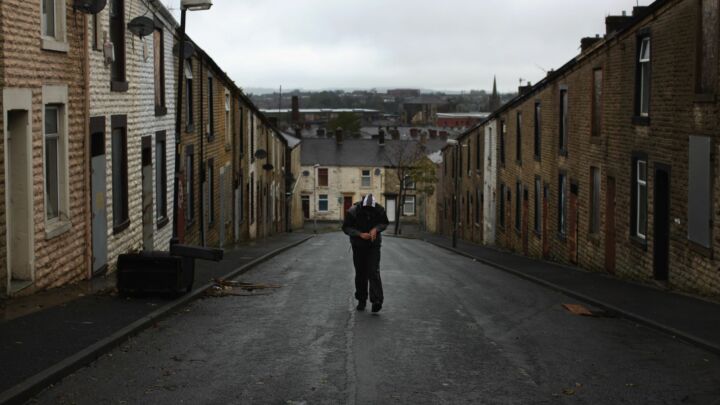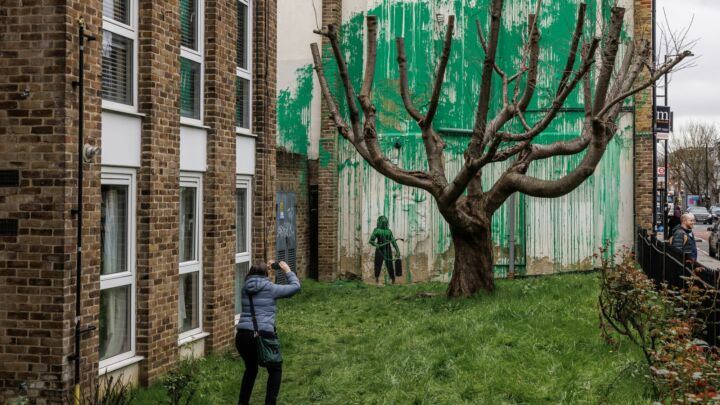Michael Parkinson: a journalist, not a celebrity
Would the legendary talk-show host, who has died aged 88, survive today’s media culture?

Much of the talk about a bygone ‘golden age of television’ is misty-eyed nonsense; some of today’s big-budget TV dramas, for example, would stand comparison with the best of Hollywood, never mind the shaky television studio sets of yesteryear. (The woke-soaked ‘dramas’ now offered by the likes of the BBC are a different matter.)
There remains little doubt, however, that Michael Parkinson, who has died aged 88, was the voice of a kind of golden age of TV chat shows that is gone forever. Between 1971 and 2007, he fronted 500 episodes of Parkinson and interviewed some 1,500 guests, many of them all-time legends of showbusiness, sport and beyond.
If you doubt his unique standing among British talk-show hosts, try to imagine Graham Norton provoking heavyweight champion Muhammad Ali into visible fury in an argument about Islam and race relations, or Jonathan Ross getting director Woody Allen almost to walk out by probing him about marrying his own stepdaughter. We seem unlikely to see the likes of ‘Parky’ and his interviews again.
What set Parkinson apart was that he was not himself a celebrity, comedian or TV star. He was from the start, and always remained, a journalist. He said that he planned an interview the way he would write an article: doing proper research beforehand, choosing every word, always aware of how long he had left. And it showed.
Born the son of a Yorkshire miner, Parkinson passed his 11-plus and went to grammar school (which he hated, leaving with two O-levels). Doing his National Service proved more fruitful; he became one of the youngest captains in the army, working as a press officer. After that he went into journalism and fought his way up from local papers to Fleet Street, combatting Oxbridge snobbery at the Guardian along the way. Parkinson even did a stint as a war correspondent, recalling how he once slept in a bath in the Congo as makeshift protection against bullets fired through the ceiling below by drunken mercenaries. (Which might put the Red Nosed trips to Africa of his successor presenters into some perspective.)
Parky then arrived at the BBC, as he once put it, with perfect timing, just as popular TV was exploding, and the snooty Beeb was finally prepared to consider having more regional accents on air. In the peak Parkinson years, between 1971 and 1982, his Saturday-night talk shows averaged around 12million viewers, drawn back each week to the new mixture of live entertainment and interrogation.
Parkinson the hard-school hack might seem a stark contrast to the gooey celebrity-sucker-uppers hosting today’s talk shows. Parky himself, a self-confessed ‘curmudgeonly old bastard’, got on his high horse about his ‘plastic’ successors often enough in later years. Yet early Parkinson was criticised by BBC bosses for being too lowbrow, and critics accused him of a ‘soft’ interview style. His response was that ‘it’s not bloodsport and I am not interviewing war criminals or paedophiles’, but ‘people whose only crime is to entertain’.
He was certainly prepared to butter up and flirt with star guests – perhaps unsurprisingly, since many of them were his personal heroes. And he would sit back and let them tell their stories uninterrupted – though that was hardly a hardship when the guests were legends such as Orson Welles, Jimmy Stewart, Lauren Bacall and Shirley MacLaine, or funny men such as Peter Cook or Billy Connolly, whom Parky gave his big BBC break. Nor would it be entirely true to say that the guests never wanted to plug their latest projects and products – although, unlike today, that was rarely the only reason they braved Parky’s famous hot seat.
Yet for all that, Parkinson in his prime remained a journalist, who thoroughly researched his subject and was prepared to ask pointedly awkward questions, whether quizzing Tony Blair about the disastrous Iraq War or John Wayne about his red-baiting role in Hollywood’s McCarthyite witch-hunt. He could get Muhammad Ali to declare that, as a black Muslim, he saw the white man as a ‘blue-eyed, blond-headed devil’, or Joan Rivers to talk about her contemplating suicide. As the Sun’s TV columnist, Ally Ross, writes, Parkinson’s kind of talk show has been effectively closed down by the PR industry, which demands – and gets – assurances that its clients will be handled with kid gloves.
In one memorable clip from BBC programme Parkinson at 50, recorded 50 years after his first shows, Parky asked Noel Gallagher detailed questions about the Oasis star’s violent Manchester upbringing and abusive father. The always-eloquent Noel for once seemed lost for words, beyond ‘How’d you know all that?’. Journalism, our kid.
Away from the screen, Parkinson also remained a fine print journalist, particularly when writing about his first love, cricket – preferably the Yorkshire variety – and football. I have fond memories of the eye-opening ‘intimate biography’ he wrote of my boyhood hero, his friend George Best (who drank even harder than Parky).
Parkinson was a man of his time, whose attitudes would be unlikely to survive today’s sanitised media culture. He once famously upset the young Helen Mirren by questioning whether her obvious ‘attributes’ interfered with her ambitions to be a ‘serious actress’. (As Mirren would observe, the well-brought-up boy from the pit village could not bring himself to talk about ‘my tits’.) Parky would later confess that his remarks could with hindsight be seen as sexist, but that still, ‘Nobody got hurt, nobody died’. That would not save him from career death-by-cancellation these days.
More strikingly still, it is hard to imagine Parky even getting started now. Could such a working-class journalist (if they still exist) break through to front one of the biggest shows on British TV in our age of celebrity / reality television and social-media ‘influencers’?
Michael Parkinson is now as much a part of our cultural past and heritage as the many late legends he interviewed. When an ailing Ali made his final appearance on the BBC in 1999, to accept his Sports Personality of the Century award, he told the awe-struck assembled dignitaries that, ‘I used to come here a long time ago to fight a guy called Parkinson’. What journalist could ask for a better epitaph than that?
Mick Hume is a spiked columnist. The concise and abridged edition of his book, Trigger Warning: Is the Fear of Being Offensive Killing Free Speech?, is published by William Collins.

Michael Shellenberger and Brendan O'Neill – live and in conversation
Tuesday 29 August – 7pm to 8pm BST
This is a free event, exclusively for spiked supporters.
Picture by: Getty.
To enquire about republishing spiked’s content, a right to reply or to request a correction, please contact the managing editor, Viv Regan.






Comments
Want to join the conversation?
Only spiked supporters and patrons, who donate regularly to us, can comment on our articles.